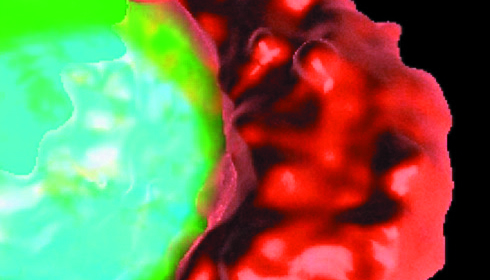
Breakthrough Biomarker Discovery Could Revolutionize Colon Cancer Treatment
In a remarkable study published recently in Cell Reports Medicine, Miller School of Medicine researchers discovered a 10-gene biomarker that can predict whether stage II or III colon cancer patients will benefit from adjuvant chemotherapy. This research has the potential to change tailored treatment approaches and increase colon cancer patients' survival rates.
The study, led by Dr Steven Chen, a Sylvester Comprehensive Cancer Center researcher, represents a big step forward in precision oncology. "When you're talking about precision oncology, it means you use an individual patient's information—here we are particularly talking about biomarkers from the patient—to guide the doctor in making a clinical decision about what kind of treatment is best for the patient," Chen said. "Ideally, we want to exclusively use adjuvant chemotherapy on individuals who will benefit from it. For those who do not respond, we must continue to look for alternative therapy."
The research team, comprising experts from Vanderbilt University and Memorial Sloan Kettering Cancer Center, set out to create a gene profile that could serve as a reliable biomarker. They methodically selected gene expression profiles from six publicly available sources, resulting in a comprehensive dataset of 933 cases. Using machine learning, they identified a network of thousands of possibly important genes and reduced it to a 10-gene network.
We thoroughly investigated this gene signature for its predictive power. The scientists compared it to thousands of random five- to 15-gene networks, and it regularly surpassed them in predicting whether a patient would respond to chemotherapy. Scientists confirmed the accuracy of the model using tumour tissue samples from 109 stage II and III colon cancer patients. Patients projected to benefit from treatment based on the gene signature showed significantly higher survival rates than those predicted not to benefit.
Chen states that collaborating closely with surgeons, oncologists, and biologists guarantees the robustness, clinical relevance, and effective translation of our findings into practice. This interdisciplinary approach was critical in demonstrating the gene signature's practical utility.
Furthermore, the study's secondary discovery indicates that the gene signature may predict the success of immunotherapy in some patients. This could lead to additional research and applications, solving the current void in guidelines for immunotherapy in colon cancer treatment.
Despite the promising results, Chen cautions that additional steps are required before the biomarker may be employed clinically. "To be really clinically applicable, we need to go through prospective clinical trials," he told me. "It means we recruit patients and apply this biomarker to see if it's really effective."
The project, funded by Sylvester, matches Chen's mission of transforming data science into real-world advantages. "I hope every research finding we discover can improve clinical decisions and eventually help cancer patients," he said.
This finding signifies a paradigm shift in colon cancer treatment, pointing to more customized and effective medicines that could greatly improve patient outcomes.